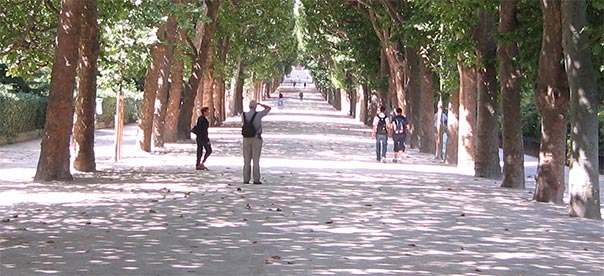 Old: Destination Management & Good Governance-EDITED
Old: Destination Management & Good Governance-EDITED
| About this topic |
||
| Destination management is a process that involves coordinated actions to benefit the destination’s environment, residents, business and visitors, addressing the relationship between them. It should be carried out by local authorities and other tourism stakeholders in partnership, following principles of good governance. It is central to the delivery of sustainable tourism as often actions taken within destinations are best able to influence the tourism impacts. | ||

|
A destination is a geographical area of visitor appeal which includes accommodation, attractions and support services. It may be defined by physical, thematic or administrative boundaries and it embraces a set of distinctive images and qualities that give it a brand identity. Destinations should be places with which tourism stakeholders have a natural affinity and within which it is practicable for them to work together. Destinations may vary considerably in size and may nest within each other. Typically, they include regions, provinces, cities, seaside or mountain resorts or sizeable rural areas with established identities. Good destination management should be based on tourism strategies for destinations that set the objectives and direction for future tourism development and activity and provide the framework for action plans. These tourism strategies and action plans are sometimes called Destination Management Plans. They should take account of the destination’s resources and capacity for tourism, current performance and market opportunities. They should contain objectives that embrace the principles of sustainability. A key requirement for sustainable destination management is partnership working based on effective stakeholder engagement. Destination management governance structures should be in place that bring together local authorities, tourism businesses and representatives of civil society, including local communities and other interests. Increasingly, destinations are setting up Destination Management Organisations (DMOs) and these should embrace this multi-stakeholder approach. A number of management tools can be used in destination management, including planning control and regulations, economic instruments, voluntary guidelines and supportive measures such as capacity building. An important process is the regular monitoring of tourism impact against a set of sustainability indicators that may be identified for the destination. A key to effective and sustainable destination management is to establish governance structures for tourism within the destination which enable a wide range of local stakeholders to work together on the planning and management of tourism. These should include local government, representatives of tourism businesses and civil society bodies, including representatives of the local community, cultural and environmental bodies and other interests. |
||
|
Helping you further ... A key requirement for sustainable destination management is partnership working based on effective stakeholder engagement. Destination management governance structures should be in place that bring together local authorities, tourism businesses and representatives of civil society, including local communities and other interests. Increasingly, destinations are setting up Destination Management Organisations (DMOs) and these should embrace this multi-stakeholder approach. |
||
|
Who is who brings you to stakeholders who are working for making tourism more sustainable. You can filter them on the DestiNet Atlas for your topic of interest, keywords, type of organisation, country, operational level and landscape type. You can display an organisation on the global DestiNet Atlas and ask for editing rights if your organisation should already be listed. |
||
|
Resources include publications and tools who can help you in making tourism more sustainable. You can filter them for your topic of interest, keywords, landscape type, country - or target group. You can disseminate your sustainable tourism publications or tools and ask for editing rights if they should already be listed. |
||
|
Good Practices present tourism businesses, tour operators, destinations and initiatives who have been finalist or winner of an award or prize for sustainable tourism. You can search in the "Atlas of Excellence" for your topic of interest, keywords, landscape type, country, a.o. If you have been finalist or winner of an award you can ask for being presented on the "Atlas of Excellence" and ask for editing rights if you should already be listed. |
||
|
The global sustainable tourism Market Place presents accommodation providers and restaurants, attractions and activities, travel packages, destinations, tour operators and intermediaries who have been certified by a sustainable tourism certification programme. You can filter them on the DestiNet Atlas for their certificate/s, keywords, topics, landscape types, country, a.o. The Market Solutions lead you to more than 100 certification programmes and other services helping you in making your tourism products and services more sustainable. You can place your product or service on the global sustainable tourism Market Place and ask for editing rights should your service already be listed. |
||
|
The Observatory section leads to organisations, initiatives and tools for observing, monitoring and reporting the sustainable development of your business or destination. |
||
|
Under each Topic you can join or start an own user group for exchange and networking e.g. with the members of your organisation, your network or project group. For further information please contact the topic folder administration. |
 My Tourism2030 - Bringing you in My Tourism2030 - Bringing you in |
Join the TOURISM 2030 community: Register for free & share your contribution! For further information please contact the folder administration: triangle@ecotrans.de |
























































